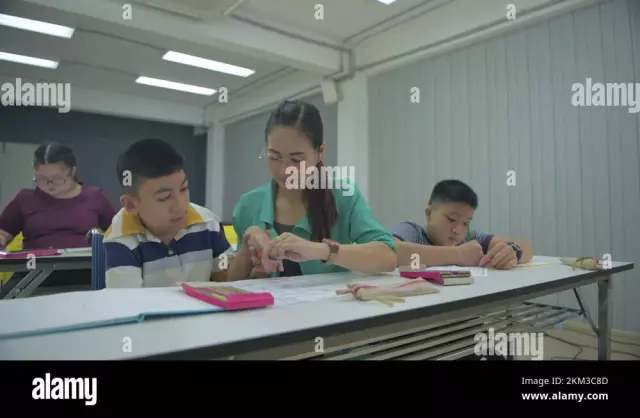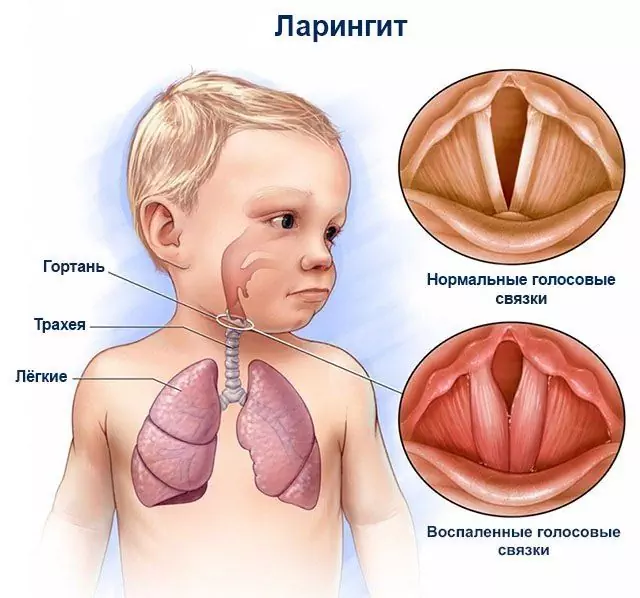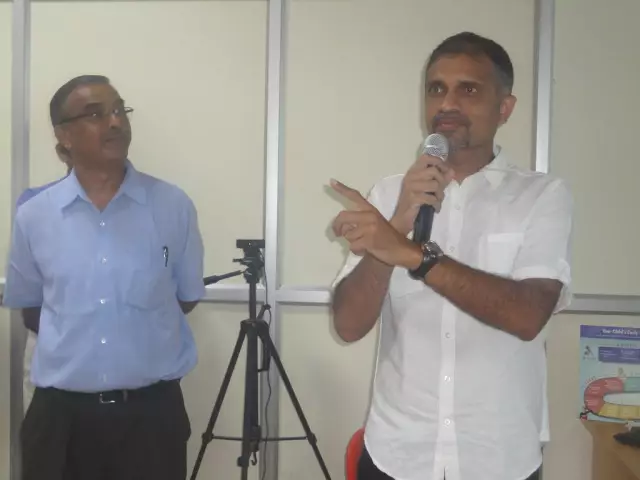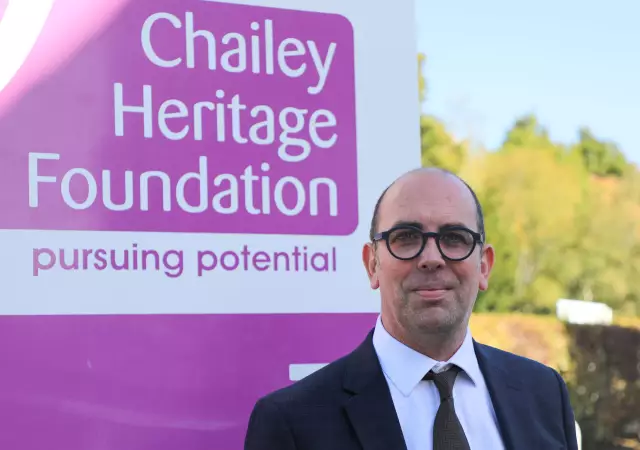- Author Rachel Wainwright wainwright@abchealthonline.com.
- Public 2023-12-15 07:39.
- Last modified 2025-11-02 20:14.
Teaching disabled children

An individual rehabilitation program for children with disabilities provides for secondary education. Based on the intellectual capabilities of the child, the program may include education in a higher school. Sick children have the right to education. This is enshrined in the Constitution of the Russian Federation (Article 43). Education of disabled children is carried out in general education schools, special correctional educational institutions, at home: by distance method or through family education. Children with disabilities are also given the right to study in music and art schools free of charge.
In order to obtain special education, disabled persons are provided with benefits when entering vocational schools, technical schools, and higher educational institutions. The only but significant limitation for the education of children with disabilities is the state of health. According to the conclusion of the medical psychiatric and pedagogical examination, children with disabilities from childhood are assigned to specialized educational institutions for teaching children with the following disabilities:
- Vision;
- Hearing;
- Speeches;
- Motor activity.
In case of existing intellectual disabilities, it is planned to teach disabled children in a special boarding school according to a special method by specially trained teachers.
One way or another, not a single invalid of childhood can be left without education, regardless of the nature of the disease.
Teaching disabled children at school
Secondary general education institutions do not have the right to refuse admission to children with disabilities, however, schools are not required to create special conditions for students with disabilities. Teachers do not develop special curricula, do not involve specialists in the process of teaching children with disabilities: defectologists, speech therapists, massage therapists, etc. Private schools have the right to accept people with disabilities, but they are not obliged to do so.
Children with disabilities who do not suffer from mental retardation, as a rule, do not have problems with the assimilation of school material. The problem of communication with peers comes to the fore for such students. Child psychology differs significantly from adult psychology, students can "organize" unbearable conditions for a disabled person not only in terms of education, but also in life. In the meantime, the management of a secondary educational institution does not have the opportunity to create favorable conditions for children with disabilities. The staff of the secondary school does not provide for the work of a psychologist, whose direct responsibility is to create the necessary microclimate in the team.
Similar conditions have been created in correctional schools to which a child is sent only with parental consent.
Homeschooling of disabled children
In cases where parents do not want their child to attend a special or general education school, the possibility of receiving secondary education at home is provided.
There are two forms of teaching for homeschooling children with disabilities:
- Family;
- Home.
Family education does not imply the participation of teachers from the general school in the educational process. The child is educated by his parents: independently or with the assistance of teachers. In this case, the family is paid monetary compensation, including the costs of education and upbringing. If, by the decision of the commission, the child needs to study in a correctional school, the amount of compensation is increased in accordance with the existing standards. An agreement is concluded between the parents and the school, which provides for an intermediate certification of knowledge. In case of negative results, the contract is terminated, and the compensation is refundable.
Home-based education for children with disabilities provides for payments for two hot meals a day, the work of assigned school teachers is paid by the state. Teachers also conduct classes with the child at home and conduct certification, during which final exams in certain subjects are provided.
A child studying at home receives a complete education, the level of which does not differ from the general one.
Distance learning for disabled children
There are several models of distance learning for teaching people with disabilities from childhood:
- At the distance learning center. Classes are conducted by full-time teachers;
- Methodological support of teaching at the place of residence;
- Development of a training program for disabled children by several educational institutions.
The educational and methodological complex of distance technologies is compiled taking into account the school plan and subject programs for individual disciplines. All information is in the public domain for both students and parents, as well as for teachers. For this purpose, sets of electronic resources have been developed.
Distance learning for children with disabilities provides for constant communication between the teacher and the student, regardless of the distance between them. Using multiple means of communication contributes to academic achievement. A disabled child has the opportunity to ask a teacher a question at any time and get an exhaustive answer.
An important achievement of distance learning is the ability to connect several children with disabilities to conduct lessons online. A child with a disability does not feel lonely and learns to work in a team. Attestation of knowledge, according to individual educational programs for children with disabilities, is carried out using electronic control of knowledge, which practically excludes the subjectivity of assessments. At the same time, disabled children acquire personal computer skills and master new information technologies.
Attestation of knowledge in teaching disabled children
The control work is carried out according to the schedule approved by the head of the training center. Full-time interaction is provided with the help of special computer programs. The student sets up the camera so that the teacher can see the workplace. This mode completely excludes the use of prompts, both verbally and in writing.

Students with a slow pace of work perform the test in several stages. Teachers have no right to escalate the situation by exaggerating the importance of attestation.
Entrance examinations to secondary technical and higher educational institutions for the disabled are held under special conditions. Applicants are given additional time to prepare for one and a half hours, regardless of the form of passing the exam: written or oral. Education of disabled children in higher and secondary technical educational institutions is also carried out according to individual programs, taking into account the recommendations of doctors, psychologists and social workers.
Disability is determined not by the state of health, but by the degree of restriction to work. Modern technologies allow disabled children to receive the necessary education and become full members of society.
Found a mistake in the text? Select it and press Ctrl + Enter.






